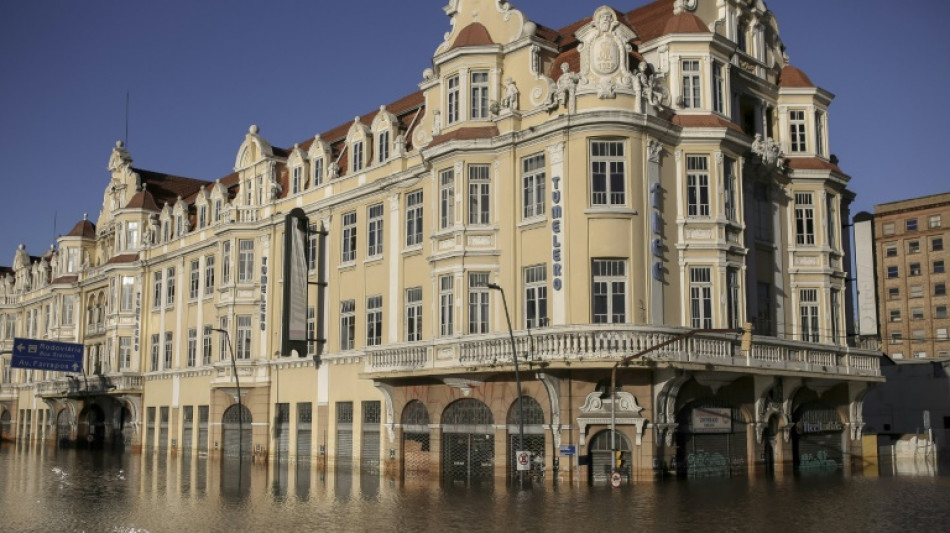
-
 Scotland spoil Italy's T20 World Cup debut with big win
Scotland spoil Italy's T20 World Cup debut with big win
-
Israeli president says 'we will overcome evil' at Bondi Beach

-
 Munsey leads Scotland to 207-4 against Italy at T20 World Cup
Munsey leads Scotland to 207-4 against Italy at T20 World Cup
-
Japan restarts world's biggest nuclear plant again

-
 Bangladesh poll rivals rally on final day of campaign
Bangladesh poll rivals rally on final day of campaign
-
Third impeachment case filed against Philippine VP Duterte

-
 Wallaby winger Nawaqanitawase heads to Japan
Wallaby winger Nawaqanitawase heads to Japan
-
Thailand's Anutin rides wave of nationalism to election victory

-
 Venezuela's Machado says ally kidnapped by armed men after his release
Venezuela's Machado says ally kidnapped by armed men after his release
-
Maye longs for do-over as record Super Bowl bid ends in misery

-
 Seahawks' Walker rushes to Super Bowl MVP honors
Seahawks' Walker rushes to Super Bowl MVP honors
-
Darnold basks in 'special journey' to Super Bowl glory

-
 Japan's Takaichi may struggle to soothe voters and markets
Japan's Takaichi may struggle to soothe voters and markets
-
Seahawks soar to Super Bowl win over Patriots

-
 'Want to go home': Indonesian crew abandoned off Africa demand wages
'Want to go home': Indonesian crew abandoned off Africa demand wages
-
Asian stocks track Wall St rally as Tokyo hits record on Takaichi win

-
 Bad Bunny celebrates Puerto Rico in joyous Super Bowl halftime show
Bad Bunny celebrates Puerto Rico in joyous Super Bowl halftime show
-
Three prominent opposition figures released in Venezuela

-
 Israeli president says 'we shall overcome this evil' at Bondi Beach
Israeli president says 'we shall overcome this evil' at Bondi Beach
-
'Flood' of disinformation ahead of Bangladesh election

-
 Arguments to begin in key US social media addiction trial
Arguments to begin in key US social media addiction trial
-
Dr. Jonathan Spages Expands Diabetes Reversal Practice Across New States, Adds Clinical Team to Meet Growing Demand

-
 Agronomics Limited Announces Net Asset Value Calculation as at 31 December 2025
Agronomics Limited Announces Net Asset Value Calculation as at 31 December 2025
-
UK-Based Vesalic Limited Emerges from Stealth with Landmark Discovery of Potential Non-CNS Driver of Motor Neuron Diseases, including ALS, and Breakthrough Therapeutic and Diagnostic Opportunities

-
 Gotterup tops Matsuyama in playoff to win Phoenix Open
Gotterup tops Matsuyama in playoff to win Phoenix Open
-
New Zealand's Christchurch mosque killer appeals conviction

-
 Leonard's 41 leads Clippers over T-Wolves, Knicks cruise
Leonard's 41 leads Clippers over T-Wolves, Knicks cruise
-
Trump says China's Xi to visit US 'toward the end of the year'

-
 Real Madrid edge Valencia to stay on Barca's tail, Atletico slump
Real Madrid edge Valencia to stay on Barca's tail, Atletico slump
-
Malinin keeps USA golden in Olympic figure skating team event

-
 Lebanon building collapse toll rises to 9: civil defence
Lebanon building collapse toll rises to 9: civil defence
-
Real Madrid keep pressure on Barca with tight win at Valencia

-
 PSG trounce Marseille to move back top of Ligue 1
PSG trounce Marseille to move back top of Ligue 1
-
Hong Kong to sentence media mogul Jimmy Lai in national security trial

-
 Lillard will try to match record with third NBA 3-Point title
Lillard will try to match record with third NBA 3-Point title
-
Vonn breaks leg as crashes out in brutal end to Olympic dream

-
 Malinin enters the fray as Japan lead USA in Olympics team skating
Malinin enters the fray as Japan lead USA in Olympics team skating
-
Thailand's Anutin readies for coalition talks after election win

-
 Fans arrive for Patriots-Seahawks Super Bowl as politics swirl
Fans arrive for Patriots-Seahawks Super Bowl as politics swirl
-
'Send Help' repeats as N.America box office champ

-
 Japan close gap on USA in Winter Olympics team skating event
Japan close gap on USA in Winter Olympics team skating event
-
Liverpool improvement not reflected in results, says Slot

-
 Japan PM Takaichi basks in election triumph
Japan PM Takaichi basks in election triumph
-
Machado's close ally released in Venezuela

-
 Dimarco helps Inter to eight-point lead in Serie A
Dimarco helps Inter to eight-point lead in Serie A
-
Man City 'needed' to beat Liverpool to keep title race alive: Silva

-
 Czech snowboarder Maderova lands shock Olympic parallel giant slalom win
Czech snowboarder Maderova lands shock Olympic parallel giant slalom win
-
Man City fight back to end Anfield hoodoo and reel in Arsenal

-
 Diaz treble helps Bayern crush Hoffenheim and go six clear
Diaz treble helps Bayern crush Hoffenheim and go six clear
-
US astronaut to take her 3-year-old's cuddly rabbit into space


Brazil's Porto Alegre: a flood disaster waiting to happen
Porto Alegre, the Brazilian metropolis left submerged after torrential rains, had been lulled into a "false sense" of security by a vast but aging system of flood defenses, an urban drainage engineer told AFP.
Leomar Teichmann said a network of dikes, levees and a massive wall was meant to protect about 40 percent of the capital city of Rio Grande do Sul state in southern Brazil, where 150 people have died and hundreds of thousands were forced from their homes.
Teichmann is an engineering consultant and former deputy director of water and sewerage services for Porto Alegre, a city of 1.4 million people on the banks of the Guaiba estuary.
He told AFP he had already warned in 2019 that the city was at risk.
- What does system consist of? -
"The system was designed after floods in 1967 and built in the 1970s. It includes about 65 kilometers (40 miles) of dykes and a concrete wall of 2.67 km, as well as 14 floodgates and 22 storm water pumping stations.
"It was a simple system that seemed functional, since it guaranteed the protection of the urbanized part of Porto Alegre.
"However, it was never tested in practice until November 2023, because it was only on this occasion that the level of the Jacui River exceeded three meters (10 feet), which is the level of the Maua wall," leading to flooding, he explained.
"In other words, the system stood for 51 years without the water of the Jacui River ever touching the wall."
- Why did it fail with latest floods? -
"Gate Number 14 buckled under the great pressure of the water and began to leak with great volume and speed.
"The amount of water was so great that the nearby pumping stations were quickly flooded, causing the pumps to shut down.
"The flooding caused by the gate failure was so rapid that the entire region was flooded in a few hours.
"This flood eventually caused a power outage in the flooded areas, and as a result, all the pumping stations north of the Gasometer Plant stopped working," he said, referring to an out-of-service power plant.
"There were several failures in sequence. In about 24 hours, the water level on either side of the system was exactly the same."
- What were consequences of these failures? -
"Already in 2019, I stated that the protection system installed in Porto Alegre gave the population a false sense of protection and security, because there was no way to contain water in case of failure of any of the elements that make up this system.
"It is an old system, with many points subject to failure and requiring high investments in operation and maintenance.
"Much is said about Porto Alegre, but this same type of flood protection system was built in Canoas, Sao Leopoldo and Novo Hamburgo (other municipalities in the state) where the system was also overwhelmed by the water level.
"In all these cities the water very quickly invaded areas that should have been protected and caused greater tragedies than if the system did not exist."
Teichmann explained that water spilling over the dikes moved much faster than rising river levels.
"I'm not saying that dikes are useless, but with a flood of this size, as soon as the dikes were overcome by water, the speed with which water passed to the other side of these was much higher than if the dikes did not exist."
A.Malone--AMWN


